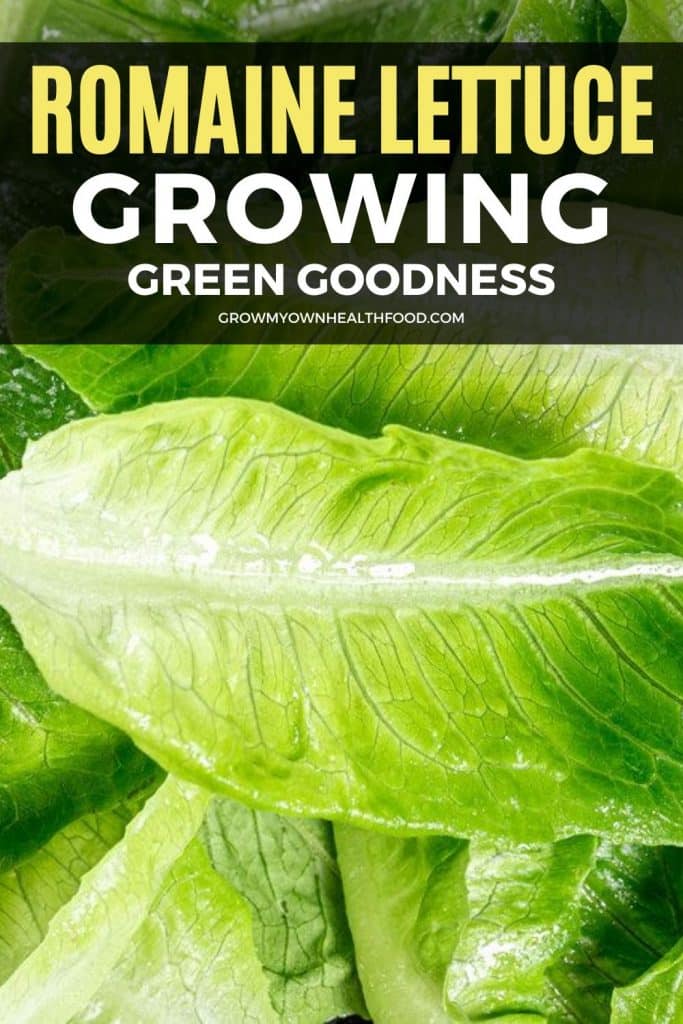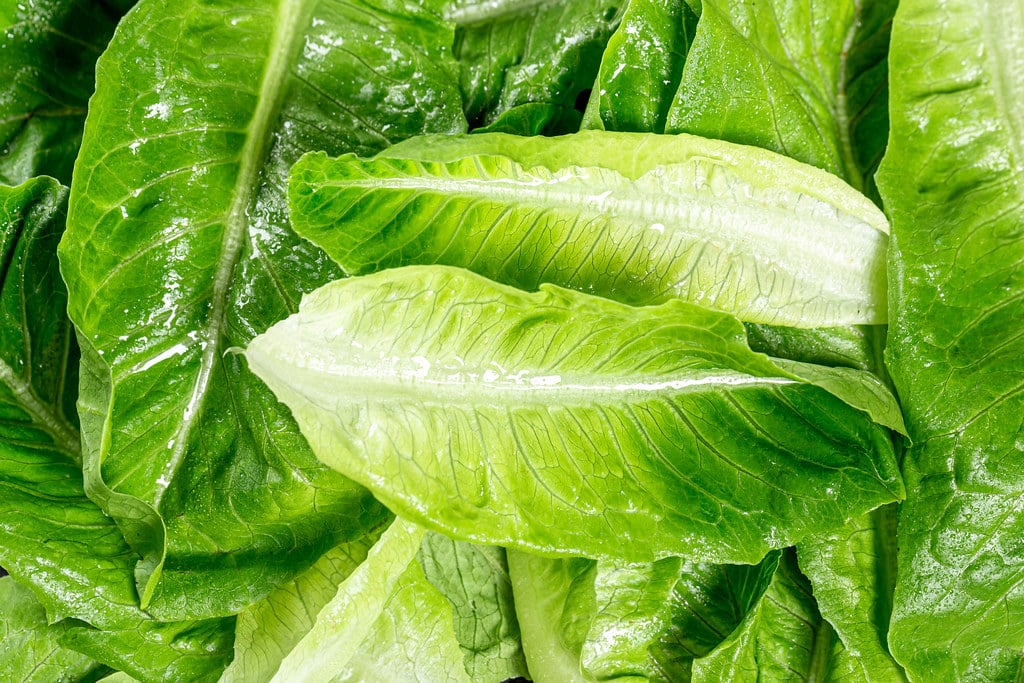Romaine lettuce is one of the hardiest salad greens which makes it quite easy to grow. It can grow in both hot and cold conditions and also stays fresh for much longer after harvesting than some other leafy greens. This makes it very popular among both new and experienced gardeners.
Most people would simply go to their nearby grocery store and grab some Romaine lettuce when they need it, however despite looking fresh, store-bought lettuce leaves are nowhere near as good as freshly plucked ones from the garden.
If you aren’t already sold on the idea of growing your own lettuce in your background, wait till you learn about how easy it is to grow.
Growing Romaine Lettuce
Here are a few things that must be kept in mind when growing romaine lettuce from seeds.
Get the Right Romaine Lettuce Seeds
When trying to grow romaine lettuce one of the first things that you will need to do is find the right seeds. What you need to keep in mind is that not all seeds are going to be the same and bad seeds will give you a poor harvest. So, to make sure you get the right seeds to grow Romaine lettuce you should only get non-GMO, heirloom Parris Island cos seeds.
- DELICIOUS TRUSTED VARIETY - Popular summer romaine lettuce seed used by gardeners for years. Romaine lettuce is not only packed with flavor, but it is very nutritional.
- CRISP - Like the romaine lettuce you find in the store. Parris island lettuce seeds produce a great head of romaine lettuce.
- SEASONS - Romaine lettuce is great to grow in the spring, summer, fall, and winter gardens. A favorite amongst hydroponic seeds t
Prices pulled from the Amazon Product Advertising API on:
Product prices and availability are accurate as of the date/time indicated and are subject to change. Any price and availability information displayed on [relevant Amazon Site(s), as applicable] at the time of purchase will apply to the purchase of this product.
These seeds have been trusted by gardeners for decades and produce high-quality romaine lettuce which is much more crisp and flavourful than store-bought lettuce. These are hydroponic seeds which means they are grown in nutrient-rich solutions as opposed to other seeds that are grown directly in the soil. This allows you to control the growing process from start to finish.
Another great thing about these seeds is that they are heirloom, non-GMO seeds, which means that they are not genetically modified or artificially altered in a laboratory.
What is the Right Season to Plant Romaine Lettuce?
Romain Lettuce grows best when the weather gets a bit cooler, but it can also tolerate hotter temperatures which makes it easy to grow. However to get the best harvest start planting when the temperature is somewhere between 45 to 75 degrees Fahrenheit. If you live in an area where temperatures tend to be higher you should plant it near some taller trees to give it some shade during the day. This is because Romaine leaves start to wilt when exposed to direct sunlight for too long. So, it is best to provide them with some shade from the sun.
Sow Your Seeds Right
You can either sow your seeds directly in the soil, in a greenhouse or use a seed tray to start your seeds. If you are using a seed tray your seeds will grow large enough in four weeks to be moved outside. When you move your plants outside, make sure to give them some breathing room by planting them around 12 inches apart.
- Gardening Made Easy - Each pod accommodates 5” plants which makes it easy to mix a large variety of different vegetable, flowers, succulents, greens herbs and lettuce planter a tiered planter
- Indoor/Outdoor Planters - This includes one Vertical Planter that are made of 5 stackable pots that can hold up to 15 different plants.
- Great Starter Kit - Our planters serve as a great starter set to plant. Our planter pots are designed to support all your planting and gardening efforts.
Prices pulled from the Amazon Product Advertising API on:
Product prices and availability are accurate as of the date/time indicated and are subject to change. Any price and availability information displayed on [relevant Amazon Site(s), as applicable] at the time of purchase will apply to the purchase of this product.
However, romaine plants are quite small and the roots don’t take up too much space. So, you can easily plant around nine plants per square inch as long as you regularly harvest the outer, older leaves. This will give your plants enough airflow once they grow bigger.
Invest in a Galvanized Raised Garden Bed
Raised garden beds are becoming more and more popular among gardeners because they are much more productive than beds in the ground. This is because they have less compacted soil and better drainage. Moreover, they can help you grow your plants much quicker as they warm earlier in the spring.
- Simple To Assemble Safe To Use - It simply takes a few minutes to build this galvanized raised bed and begin planting plants.
- More Planting Space - The overall dimensions of this raised garden bed 72 x 36 x 12 inches
- Anti-rust - Made of Q195 galvanized steel plates with double-layer anti-corrosion galvanizing.
Prices pulled from the Amazon Product Advertising API on:
Product prices and availability are accurate as of the date/time indicated and are subject to change. Any price and availability information displayed on [relevant Amazon Site(s), as applicable] at the time of purchase will apply to the purchase of this product.
However, If you live in an area where the weather stays moist and humid for a long part of the year you won’t be able to use wooden garden beds because they rot over time because of the moisture. This is why you need the Galvanized Raised Garden Bed.
These are special garden beds that are manufactured with galvanized steel plates with a double anti-corrosion layer. They also have a zinc coating that creates a healthy environment for your plants. They are built with open bases to prevent the risk of rot and other diseases from water accumulation. The open bases are also great for the roots as they help increase nutrient absorption resulting in stronger roots and healthier plants.
Protect Your Romaine Lettuce Plants
You need to ensure your plants are protected from different types of pests like earwigs, slugs, and cutworms. They are particularly vulnerable when they are young so make sure you cover them up with garden mesh from the get-go. A thin gardening mesh netting also helps protect your plants from strong winds. It provides some shade from the sun during the day, and keeps away bugs, birds, and other animals. It is also quite versatile because it allows light and water through while making sure that birds, animals, and pests stay out.
- Ultra-Fine Mesh Netting - Ultra Fine Garden Netting has a 0.8mm x 1mm ultra fine mesh, effective protect vegetable plants fruits flowers crops and so on.
- Air, Water & Light Through - Unique oblong hole construction creates a very fine protections for great results.
- All-Purpose Garden Netting - Garden netting covers are widely used in pastures, orchards and gardens.
Prices pulled from the Amazon Product Advertising API on:
Product prices and availability are accurate as of the date/time indicated and are subject to change. Any price and availability information displayed on [relevant Amazon Site(s), as applicable] at the time of purchase will apply to the purchase of this product.
Make sure you buy a durable gardening mesh netting that can withstand tough weather conditions without deteriorating over time. It should also be able to block out UV rays and protect the plants underneath. While being lightweight and flexible so you can easily install it over plants and trees with irregular shapes.
How Long Does it Take Romaine Lettuce to Grow?
Romaine plants generally take around 70 to 75 days to form a full head. However the time period can vary depending on the environment. Feel free to harvest leaves from the outside of your plants sooner than that. However, make sure that you are taking the oldest, more mature leaves from the outside of your plant. So your plants can grow new leaves from the center. Also, make sure that you do not overharvest. It is important that each plant is given sufficient time to recover before you can harvest new leaves.
How Nutritious is Romaine Lettuce?
Romaine lettuce is more nutritious than you might expect. It is high in minerals like calcium, phosphorous, magnesium, and potassium. It also has lots of vitamins like vitamin C, vitamin K, and folate. For full romaine lettuce nutrition facts read on.
How to Harvest Romaine Lettuce So It Keeps Growing?
One of the reasons gardeners love growing romaine lettuce is that it is one of those plants that can give you a full harvest year after year with little effort. All you have to do is make sure that you cut the romaine heads below the lower leaves and slightly above the soil line. This will encourage the plants to keep growing more leaves. Here are a few gardening products that might help you when growing romaine lettuce.











